General election 2019: Nuclear power in Wales - what will parties do?
- Published
- comments
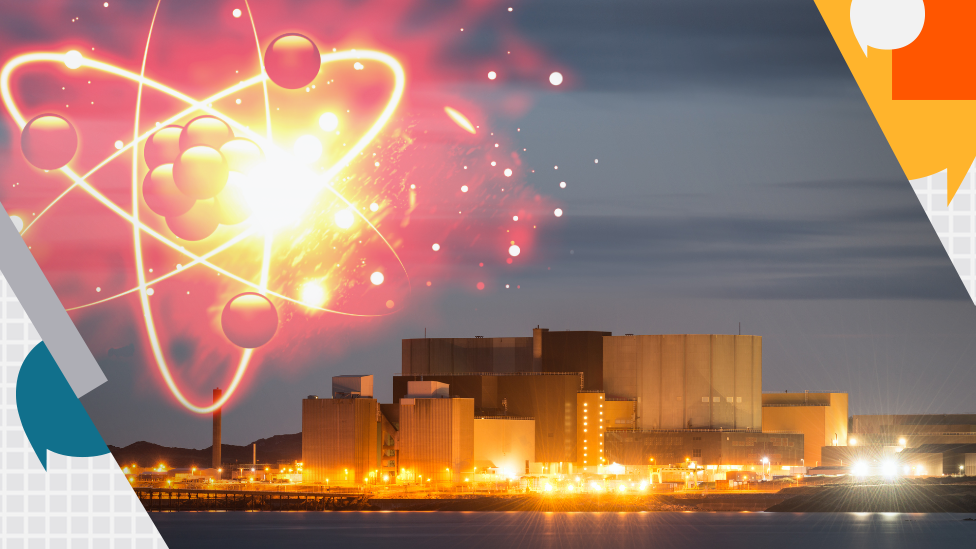
Pick up any of the main parties' election manifestos and it is hard to escape pledges on the environment and climate change.
The Conservatives, Labour, Liberal Democrats and Plaid Cymru all make promises ranging from a "green industrial revolution" to "decarbonisation".
One question you have been asking is: What about nuclear power in Wales?
The UK gets about a fifth of its electricity from nuclear generation, but it is from ageing plants and reactors approaching retirement.
Wales' two nuclear plants have already finished generating electricity - Trawsfynydd in Gwynedd back in 1991 followed by Wylfa on Anglesey in 2015, the last - and longest running - Magnox fuel nuclear plant.
After almost four years, the very last of those used radioactive Magnox fuel cells were removed from the site in September.
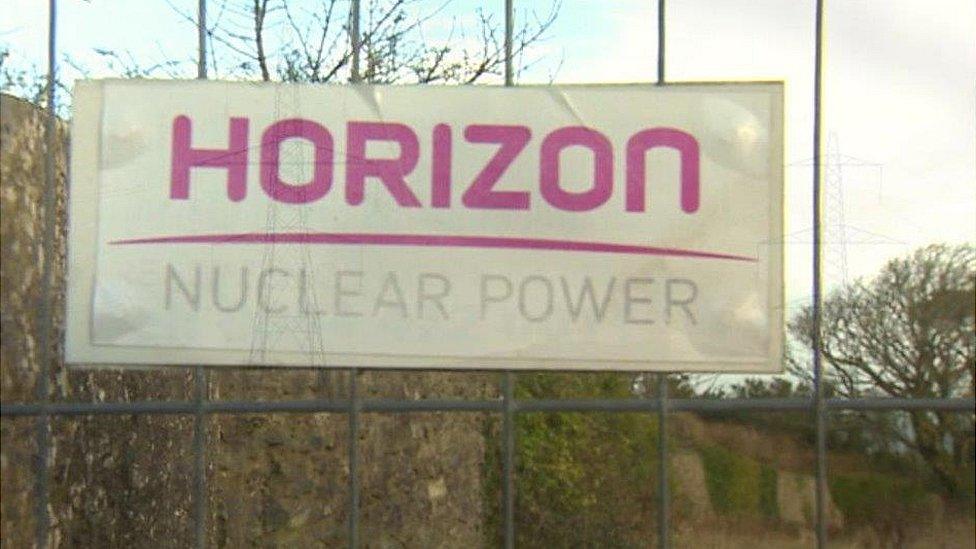
In January this year, a £16bn plan to build a second nuclear power plant at Wylfa was mothballed.
After years of planning, land purchases and design hurdles, the Japanese energy giant Hitachi pulled the plug on the project, leaving the company it owned - Horizon Nuclear Power - to sack its 1,000-strong workforce, costing Horizon £1.7bn in pre-tax losses.
But the plans are not entirely dead - rather in a state of suspended animation - and the planning process to approve the technology for the new Anglesey plant continues.
The UK government - whoever is elected after the general election - is legally committed to giving a decision on the Development Consent Order, external next year.
Energy Island
On Anglesey, nuclear has always been a hot potato of a topic - especially at election time.
Wylfa remained a significant employer since electricity generation ended while fuel cells were removed from the site.
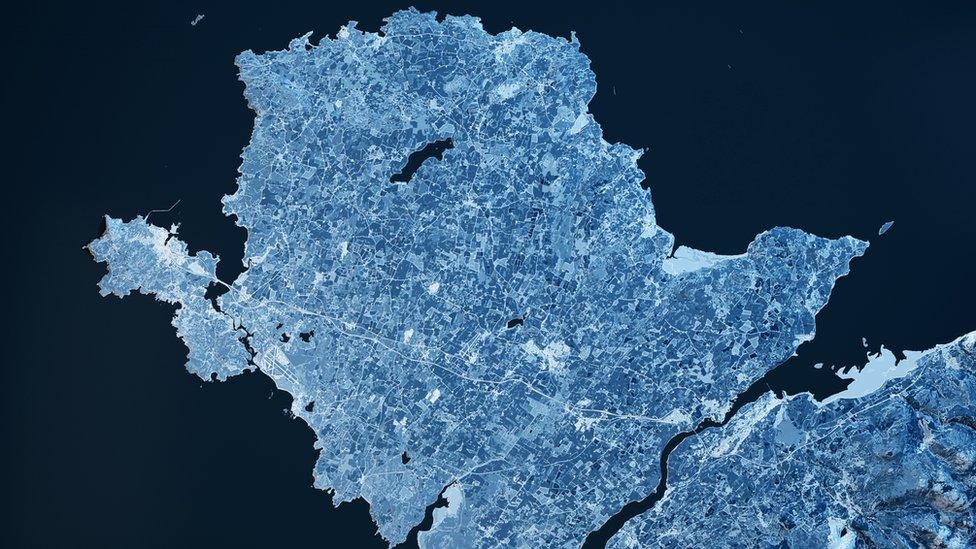
A lingering hope remains that a new plant will be built - and with it, more jobs - always a vote winner.
But there is also a vocal anti-nuclear lobby - they would rather see cash invested in wind, wave and solar technology, which is also a significant employer in a constituency that dubs itself 'energy island, external'.
Politics on the island
It is a constituency that has been a three-way marginal seat more often than not held by Labour, Conservatives and Plaid Cymru in the 15 general elections since work to build the original Wylfa plant began in 1963.
Since then, the voters of Ynys Mon have traditionally returned the sitting MP then switched party allegiance the three times those sitting MPs stepped aside from politics - from Labour to Tory in 1979, Tory to Plaid in 1987 and Plaid back to Labour in 2001.
In this election, Labour's Albert Owen has retired after 18 years as the island's MP.
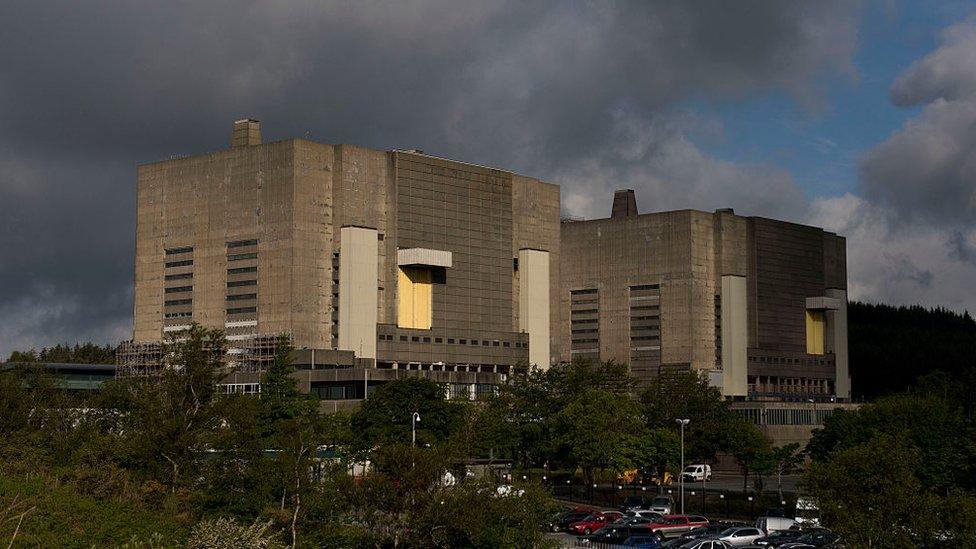
Is there a new future on the horizon for Trawsfynydd?
Small is beautiful?
While Trawsfynydd near Dolgellau in Gwynedd saw its nuclear plant close nearly 30 years ago, the atomic energy story there may not have finished.
About 200 people still work on decommissioning the old site, but that is expected to steadily fall over the next decade.
But there is a new buzz about the place - and it is all about Small Modular Reactors - or SMRs.
The UK government's research and innovation arm is pumping £18m into a consortium led by Rolls-Royce to develop low-cost, factory assembled small nuclear plants.
Those involved hope they can use these sites to deliver "nuclear power at the price of wind".
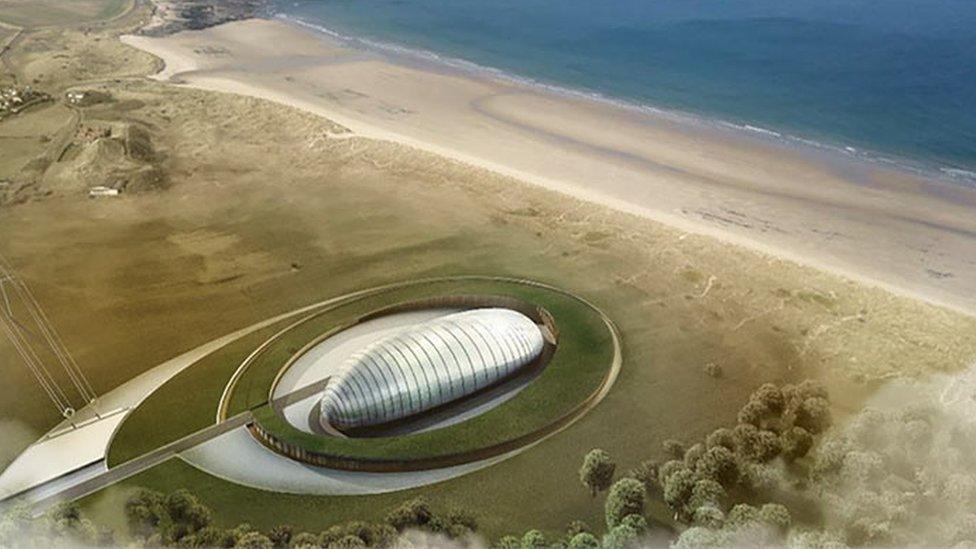
A consortium led by Rolls-Royce wants to deliver small reactors within a decade
Rolls-Royce's chief technology officer Paul Stein has made no secret of the fact Trawsfynydd is in its sights as a potential host for one of these new generation of small nuclear plants.
He has gone on the record to state he believes there was a "pretty high probability" that Wales would be an early beneficiary of its first forays into building these reactors.
Roll-Royce and its partners would like to see the first SMRs up, running and generating electricity within eight to 10 years.

CONFUSED? Our simple election guide, external
POLICY GUIDE: Who should I vote for?, external


Where do the parties stand on nuclear?
The Conservatives have been emphatically in favour of nuclear power - their manifesto states, external: "We will support gas for hydrogen production and nuclear energy, including fusion, as important parts of the energy system, alongside increasing our commitment to renewables."
Asked specifically about Wales - and Wylfa, the party said: "The Welsh Conservatives support Wyfla B and we believe that nuclear power will continue to play a vital role in meeting the energy needs of Wales and the UK in the coming decades.
"We do not believe that Wales will need more nuclear power stations in addition to Wyfla."
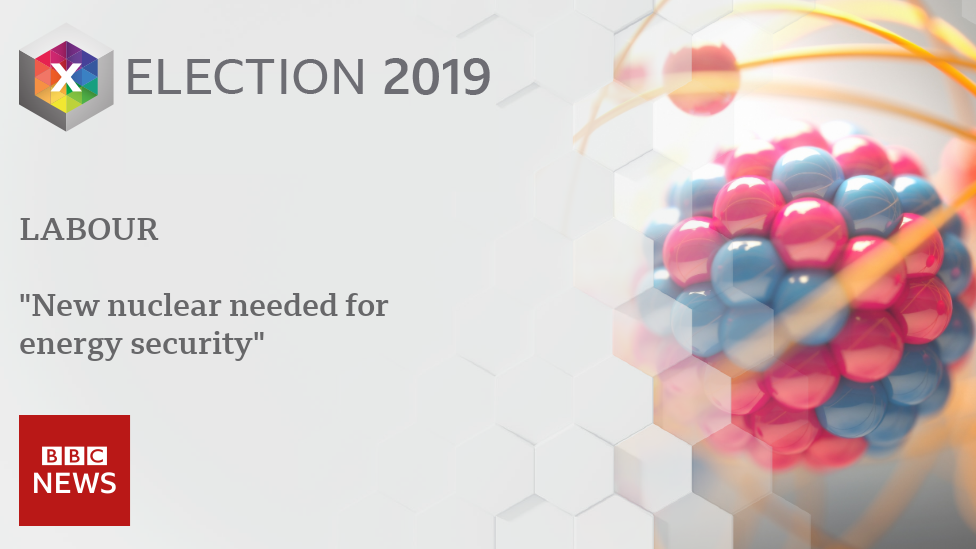
Labour's manifesto, external is equally clear in Wales - it is also backing nuclear power - insisting new nuclear is "needed for energy security".
On Wylfa Newydd - the party said: "The Tories have let down the people of Ynys Môn by failing to deliver the Wylfa project. Labour will work with people on the island to maximise its potential for new nuclear energy, alongside investment in renewables."
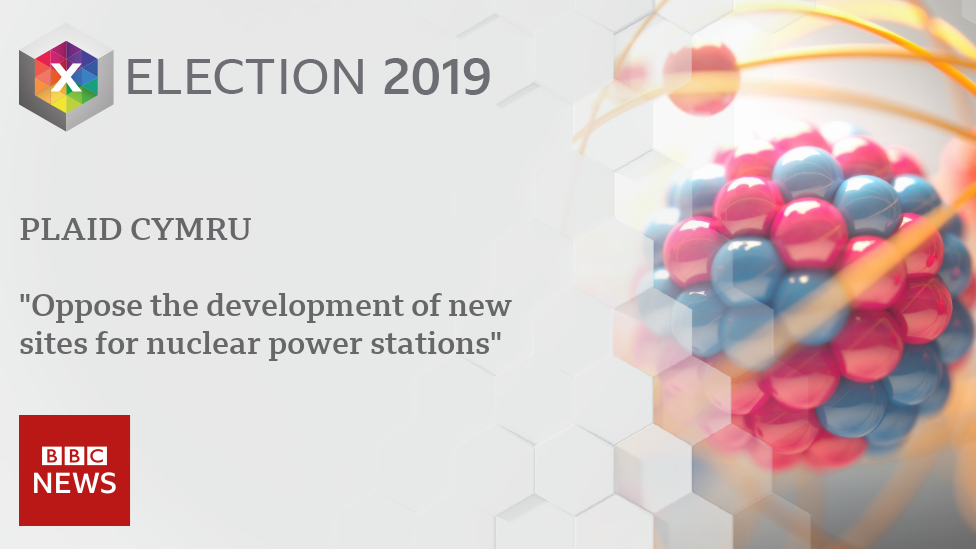
Plaid Cymru also addresses the issue - which is politically tricky for a party with an eye on recapturing Anglesey from Labour.
Its manifesto states, external it will "oppose the development of new sites for nuclear power stations".
On Wylfa, the party said: "The question is hypothetical as the plans are currently suspended and no-one is proposing to underwrite the project.
"Plaid Cymru opposes new nuclear projects and our priority is on the green jobs revolution - investing in renewables, creating tens of thousands of green collar jobs (including on Anglesey) and tackling the climate emergency."
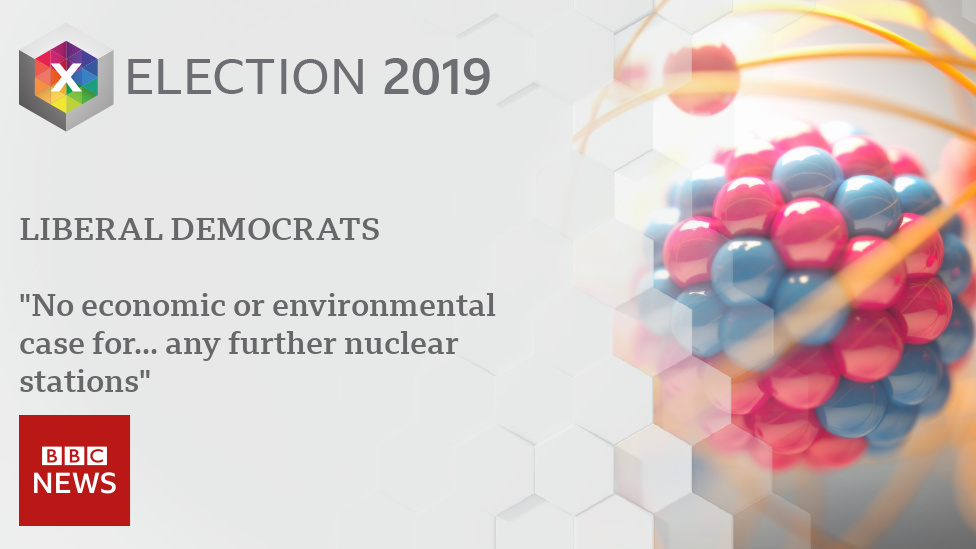
The Liberal Democrats say they want to "decarbonise the power sector completely".
The party's UK manifesto, external does not deal with the issue of nuclear energy directly - rather focusing on "supporting renewables".
But the Welsh party said there was currently "no economic or environmental case" to build any new nuclear plants in the UK.
They went even further on Wylfa and new Welsh plants: "We therefore would not support a new nuclear site on Wylfa Newydd or new nuclear stations elsewhere in Wales."
However, because of the electoral pact with Plaid Cymru - the Welsh Liberal Democrats and the Green Party are not fielding candidates in Ynys Môn.
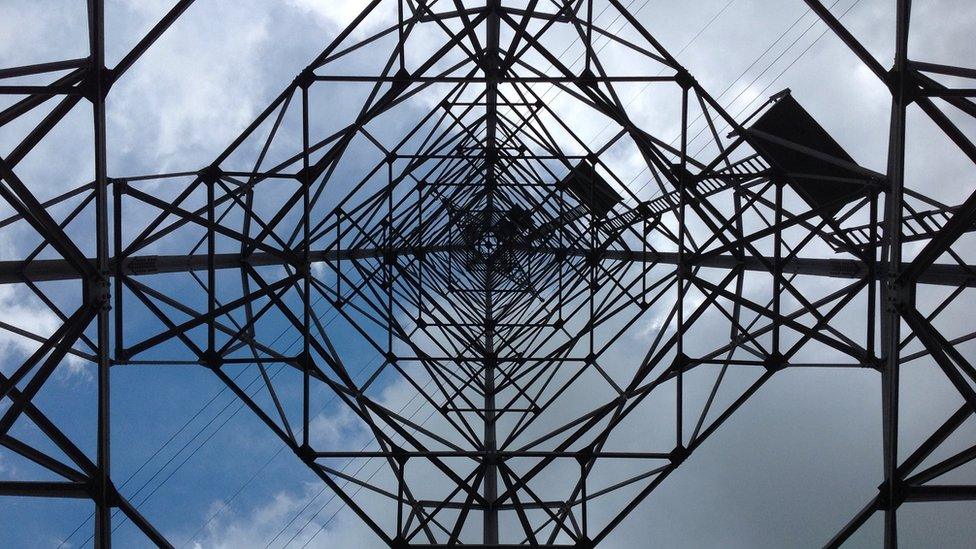
The Green Party said nuclear energy was "a distraction from developing renewable energy".
It says it would "prohibit the construction of nuclear power stations" in its manifesto, 'If Not Now, When', external.
UKIP's manifesto, external states: "UK needs a mix of energy sources comprising nuclear, conventional and renewable", while nuclear power does not feature in the Brexit Party's election contract, external.

What are your questions about the general election? You can let us know by completing the form below.
In some cases your question will be published, displaying your name and location as you provide it, unless you state otherwise. Your contact details will never be published. Please ensure you have read the terms and conditions.
If you are reading this page and can't see the form you will need to visit the mobile version of the BBC website to submit your question or send them via email to YourQuestions@bbc.co.uk, external. Please include your name, age and location with any question you send in.
- Published11 December 2019

- Published28 November 2019

- Published19 November 2019

- Published15 November 2019

- Published23 October 2019
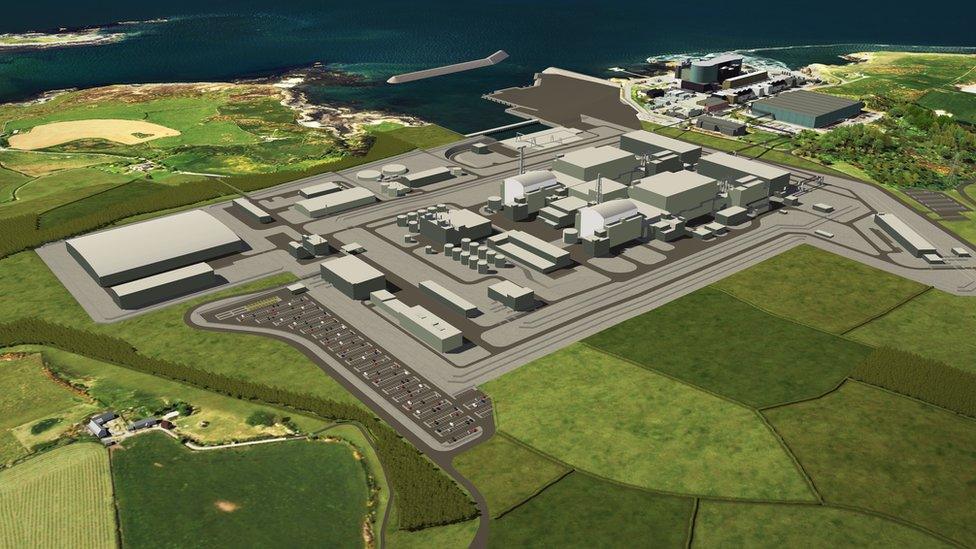
- Published17 January 2019
